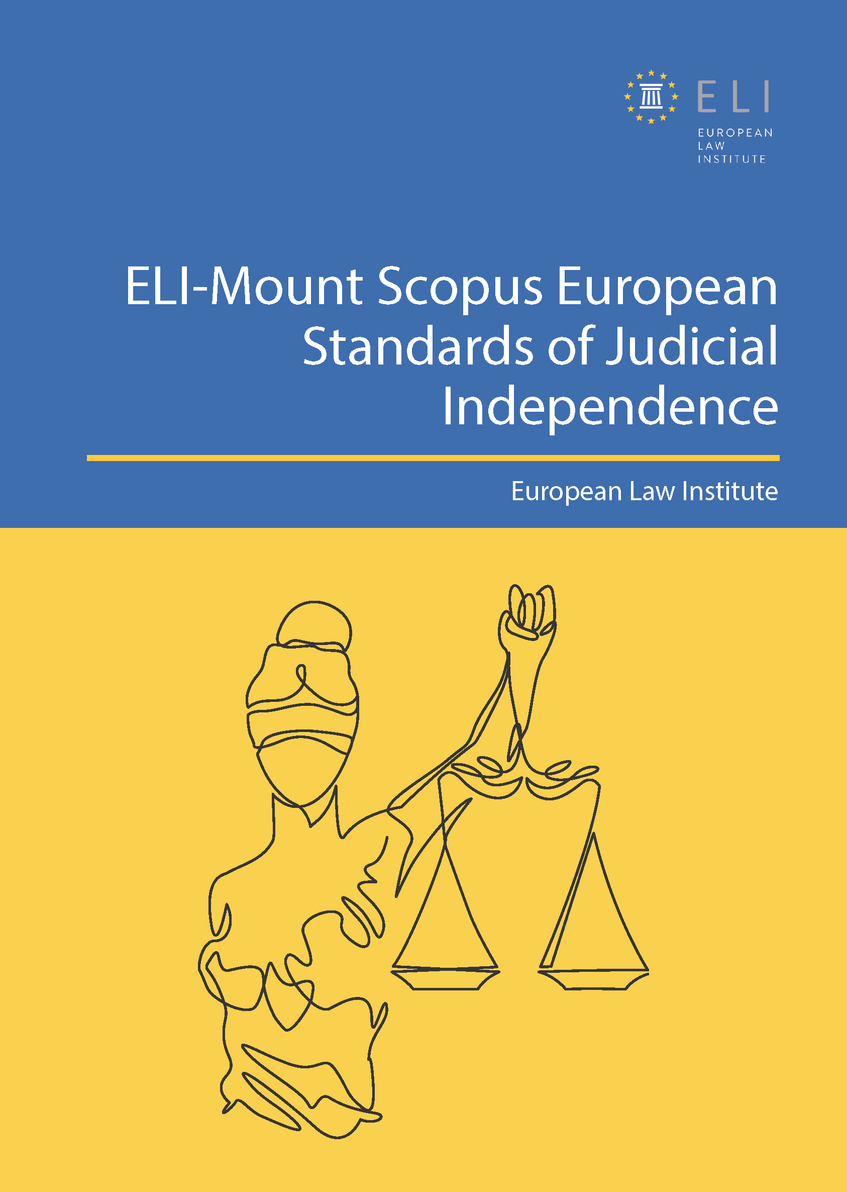ELI-Mount Scopus European Standards of Judicial Independence
Background
The International Association of Judicial Independence and World Peace (JIWP), an academic association aiming to introduce innovative concepts of judicial independence and to clarify significant components essential for liberty, democracy, human rights and effective world trade, elaborated the Mount Scopus International Standards of Judicial Independence. They were approved in 2008 and consolidated in 2018 (Mount Scopus Standards, available under this link). These standards were developed with a view to enable the judiciary to play a role in the adequate protection of human rights and in the operation of an efficient and fair market economy with a human face in the era of globalisation.
The Mount Scopus Standards are – intentionally – of a very general nature to allow for their application in a broad range of jurisdictions globally. In particular, they consider the situation in a range of common law jurisdictions, which are significantly different in various respects from the continental European jurisdictions.
Therefore, the Mount Scopus Standards should be redrafted and adapted to fit also the situations in non-common law jurisdictions in Europe. At the same time, particular challenges to judicial independence are gradually on the rise in many European countries. Therefore, the Mount Scopus Standards need to be adjusted to better address these current challenges.
Aim
The project aims to review, update and adjust the Mount Scopus International Standards of Judicial Independence to the reality of European jurisdictions as well as to current challenges to judicial independence in some of the European countries.
Outcome
As a result of the joint work of experts from the ELI and experts from the JIWP, who had contributed to the drafting of the Mount Scopus Standards, the ELI-Mount Scopus European Standards of Judicial Independence will be developed. They might become a major point of reference in academic and practical discussion on the vital problem of judicial independence. More importantly, they will provide specific guidance for measuring judicial independence in a legal system as well as to submit suggestions for legislative change or for the adaptation of current practices on the part of authorities.
Project Reporters
Advisory Committee Members
Teresa Bielska-Sobkowicz (Assessor)
- Daniela Cavallini
- Rosa María Fernández Riveira
- Zoltán Fleck
- David Kosar
- Paul Gilligan (Assessor)
- Fausto Pocar (Assessor)
- Matthias Storme
- Lord John Thomas (Assessor)
- Alexander Trunk
- Boštjan Zalar
Members Consultative Committee
- Antonio Del Sole
- Mustafa Ebaid
- Sjef van Erp
- Ece Göztepe
- Luis Hott
- Nicolas Kyriakides
- Oliver Mader
- Maria Rosaria Maugeri
- Jonathan McGowan
- Marko Novak (Chairperson)
- Olena Mykolayivna Ovcharenko
- Guillermo Ormazabal Sánchez
- Jose Pau
- Marieta Safta
- Albertas Šekštelo
- Thomas Stadelmann
- Ingo Klaus Wamser
- Irina Zlatescu
- American Constitution Society (represented by Jeanne Hruska)
- Centre for Legal Research, University of Porto (represented by Tiago Morais Rocha)
- The Institute of Comparative Law (represented by Ana Knežević Bojović)
Observer
- The Association of European Administrative Judges (AEAJ) (represented by Sylvain Mérenne)
- The OSCE Office for Democratic Institutions and Human Rights (ODIHR) (represented by Ms Carolyn Hammer and Mr Ghenadie Barba)

